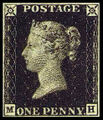Template:Selected anniversaries/May 6: Difference between revisions
No edit summary |
No edit summary |
||
| Line 19: | Line 19: | ||
||1848: Henry Edward Armstrong born ... chemist and academic. Although Armstrong was active in many areas of scientific research, such as the chemistry of naphthalene derivatives, he is remembered today largely for his ideas and work on the teaching of science. Pic. | ||1848: Henry Edward Armstrong born ... chemist and academic. Although Armstrong was active in many areas of scientific research, such as the chemistry of naphthalene derivatives, he is remembered today largely for his ideas and work on the teaching of science. Pic. | ||
||1859: Alexander von Humboldt dies ... polymath, geographer, naturalist, explorer, and influential proponent of Romantic philosophy and science. Pic. | ||1859: Alexander von Humboldt dies ... polymath, geographer, naturalist, explorer, and influential proponent of Romantic philosophy and science. Pic. | ||
| Line 51: | Line 49: | ||
||1929: Paul Lauterbur born ... chemist and biophysicist ... shared the Nobel Prize in Physiology or Medicine in 2003 with Peter Mansfield for his work which made the development of magnetic resonance imaging (MRI) possible. Pic. | ||1929: Paul Lauterbur born ... chemist and biophysicist ... shared the Nobel Prize in Physiology or Medicine in 2003 with Peter Mansfield for his work which made the development of magnetic resonance imaging (MRI) possible. Pic. | ||
File:Hindenburg disaster.jpg|link=Hindenburg disaster (nonfiction)|1937: [[Hindenburg disaster (nonfiction)|Hindenburg disaster]]: The German zeppelin ''Hindenburg'' catches fire and is destroyed within a minute while attempting to dock at Lakehurst, New Jersey. Thirty-six people are killed. | File:Hindenburg disaster.jpg|link=Hindenburg disaster (nonfiction)|1937: [[Hindenburg disaster (nonfiction)|Hindenburg disaster]]: The German zeppelin ''Hindenburg'' catches fire and is destroyed within a minute while attempting to dock at Lakehurst, New Jersey. Thirty-six people are killed. | ||
Revision as of 22:07, 26 January 2022
1635: Physician, alchemist, scholar, and adventurer Johann Joachim Becher born. Becher will propose Phlogiston theory in an attempt to explain processes such as combustion and rusting, which are now collectively known as oxidation.
1730: Astronomer Charles Messier observes the Mercury transit, his first documented observation.
1840: The Penny Black postage stamp becomes valid for use in the United Kingdom of Great Britain and Ireland.
1872: Mathematician, physicist, and astronomer Willem de Sitter born. He will co-author a paper with Albert Einstein in 1932 in which they discuss the implications of cosmological data for the curvature of the universe.
1895: Mathematician and academic Júlio César de Mello e Souza born. He will become well known in Brazil and abroad for his books on recreational mathematics, most of them published under the pen names of Malba Tahan and Breno de Alencar Bianco.
1937: Hindenburg disaster: The German zeppelin Hindenburg catches fire and is destroyed within a minute while attempting to dock at Lakehurst, New Jersey. Thirty-six people are killed.
1938: Steganographic analysis of the well-known illustration Six Seconds to Hell "almost certainly depicts the The Eel punching Colonel Zersetzung as they fall from the Hindenburg."
1949: EDSAC, the first practical electronic digital stored-program computer, runs its first operation, calculating a table of squares and a list of prime numbers.







